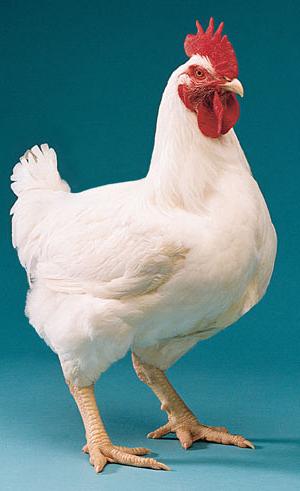Cases of first impression


I'd like to respond, at least as an initial matter, to Susan Schneider and Anthony Schutz's excellent summaries of agricultural law with a thought experiment.
When I first taught agricultural law in spring 1994, I began with National Broiler Marketing Association v. United States, 436 U.S. 816 (1978) (expertly summarized and analyzed on Agricultural Law by Amy Broadmoore). NBMA, an epic Supreme Court case involving agriculture's exemption from federal antitrust law, posed one essential question — "What is agriculture?" — and set the stage for another — "What is agricultural law?"
If I were to teach agricultural law today, I think I'd start by assembling a set of materials outlining the issues behind Beyond Food and Evil, 56 Duke L.J. 1581 (2007). Specifically, I'd present the regulatory sequence from the FDA's 1993 approval of recombinant bovine somatotropin (rbST) as an animal drug, through constitutional litigation over state labeling laws responding to the rbST approval, and concluding finally in the Organic Food Labeling Act of 1997 and contemporary FDA directives regarding milk produced by cows treated, vel non, with rbST.
 NMBA was a single case involving an agricultural exemption from an otherwise generally applicable law. It foreshadowed the rise of vertical coordination and contract production in the poultry industry, a subject of keen interest during the 1990s. Beyond Food and Evil addresses a broader range of issues, from production to marketing and the consumer stake in the food system. The rbST approval began a more complex legal process that eventually involved legislative, judicial, and administrative decisionmakers at both the state and the federal level. rbST was a live and active controversy during spring 1994. Indeed, I finished my agricultural law class by focusing on it. But today I'd lead with a discussion of the controversy depicted in Beyond Food and Evil. I'd reassign NMBA to a broader discussion of antitrust and labor law and the agricultural exemptions in those bodies of federal law.
NMBA was a single case involving an agricultural exemption from an otherwise generally applicable law. It foreshadowed the rise of vertical coordination and contract production in the poultry industry, a subject of keen interest during the 1990s. Beyond Food and Evil addresses a broader range of issues, from production to marketing and the consumer stake in the food system. The rbST approval began a more complex legal process that eventually involved legislative, judicial, and administrative decisionmakers at both the state and the federal level. rbST was a live and active controversy during spring 1994. Indeed, I finished my agricultural law class by focusing on it. But today I'd lead with a discussion of the controversy depicted in Beyond Food and Evil. I'd reassign NMBA to a broader discussion of antitrust and labor law and the agricultural exemptions in those bodies of federal law.So here's my question for my Agricultural Law colleagues and for the readers of this forum. How would you begin a course in agricultural law today, and why?










1 Comments:
I teach Agricultural Law in Canada and am currently preparing my materials for January 2009. I find your post timely as I am currently deciding how to begin my course. I generally start with an overview of the Canadian Ag Sector and then move onto rules governing farm ownership in Saskatchewan and then farm security and debtor/creditor issues, labour, environment,etc. I find, however, that as I move from topic to topic that the material is not well linked. I wonder if there are better themes to organize the material around that connect the policy drivers behind different regulatory regimes and farmer responses to those regimes. Perhaps Agrarianism, Health and Disease, Globalization, Food Security, Environment, Energy Security.
Post a Comment
<< Home